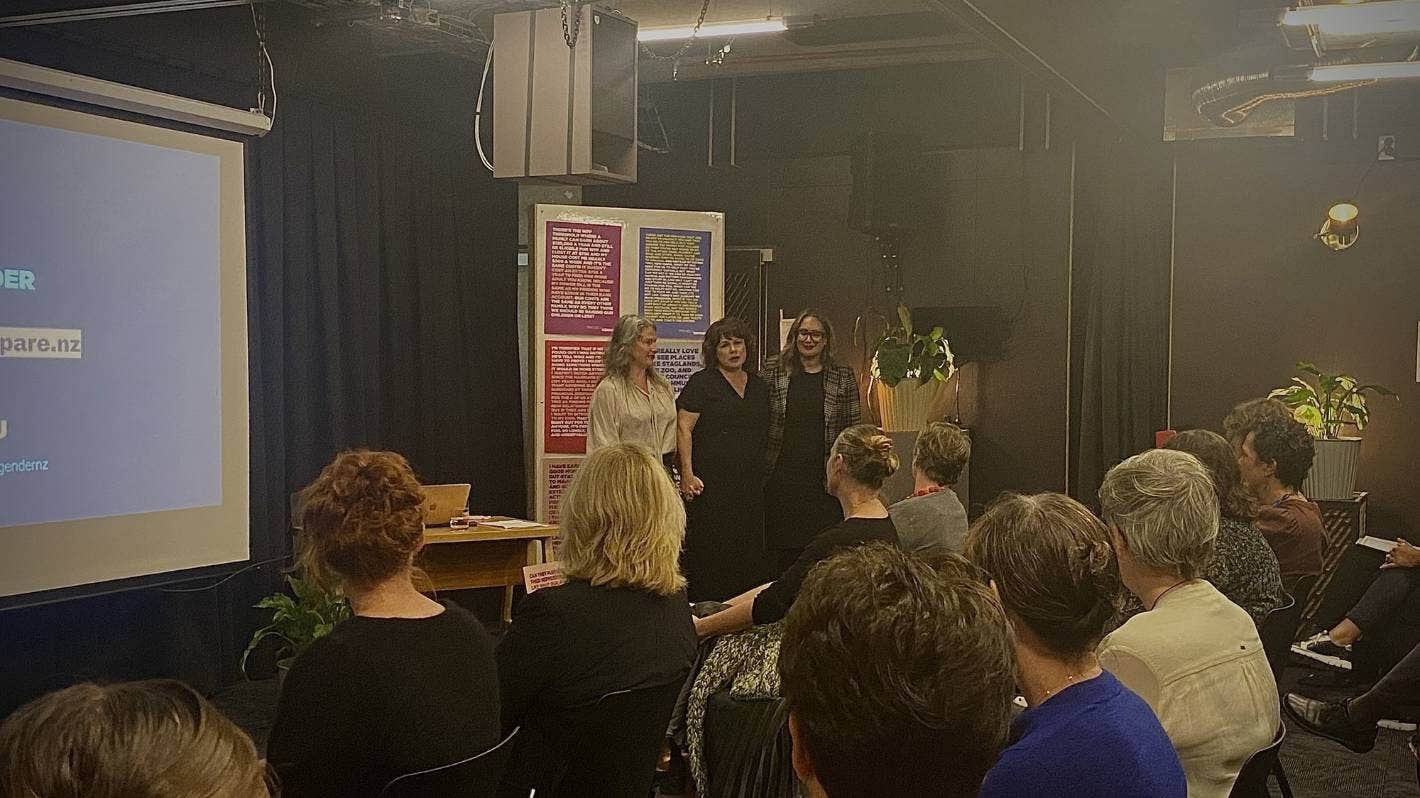Swim, Mako Mama - Mangopare, Swim!
Single parent whānau have told us what they need: now, it's time for action.
Tēnā koutou katoa,
Yesterday was an incredibly special morning for Project Gender: we launched Mako Mama - Mangopare, our single parents project, in conjunction with Ngāti Kahungunu.
Mako Mama - Mangopare is a groundbreaking report detailing 82 recommendations to address the discrimination and systemic inequity faced by Single Parents in Aotearoa New Zealand.
This report highlights the urgent need for change to support Single Parents and their children and offers three areas for immediate impact and eight key action areas for change.
Image via Stuff: Ange, Tan & Krystal at the launch of Mako Mama - Mangopare
“In Maoridom the traditional role of wahine was the nurturer, the educator, the holder of whakapapa, and the role of the Tane was the protector and guide, collectively this created intergenerational resilience. However modern day society has placed more pressure and tensions on wahine and tane to the point that their traditional roles are disrupted and confused with both being left in a world of calamity “Te Ao Tara Aitu”. Government policy and the disconnection of whānau whanui has resulted in many people bearing the burden of navigating complex government systems and societal norms on their own to survive. Their voices are unheard and unheeded.” says Chrissie Hape, Kaiwhakahaere Matua, Ngāti Kahungunu Iwi.
“Our kaupapa was to ensure that we centered the voices and experiences of single parents at the heart of this project, they are the experts of their own lives and have to be instrumental in helping change the system”, says Project Gender’s Director of Research, Tania Domett.
Mako Mama Mangopare reveals that Single Parents face significant stigma and discrimination in their daily lives, with many facing negative attitudes from government departments, employers, and the wider community. These attitudes, among other systemic barriers, affect their access to education, employment, healthcare, and other basic needs.
Our Recommendations
Head to Mako Mama - Mangopare for the full breakdown of our recommendations, which is slightly easier to read!
To read the full report, click here.
We’re thrilled that the media has picked up the report & fostered the kōrero. We’ve included some of our favourite write-ups & interviews below:
RNZ: Tania speaks with Kathryn Ryan on Nine to Noon & Ange talks with Morning Report and The Panel.
Te Karere has compiled a great reel on Instagram of the launch, as well as their coverage & interview with Tui.
Breakfast TV + TVNZ spoke with Tania and also with Emma, about her experience as a single parent. They also featured a clip on 1News.
Stuff featured two articles on the report: one focusing on restrictive relationship rules and the other talking about the launch itself.
The Post has another story, focusing on the discrimination that single parent whānau face.
So - that’s the wrap-up of the launch of this epic piece of mahi, which has been an absolute privilege for us to conduct.
To the more than 3,500 single parents who supported this project by sharing their insights, frustrations and suggestions for change. We hear you. We know that you know - more than anyone - what needs to change. We thank you for trusting us with your stories and we are committed to taking your voices forward. He aha te mea nui o te ao? He tangata he tangata he tangata! (What is the most important thing in the world? It is people, it is people, it is people!). Ngā mihi nui; kia ora rawa atu. We hope that we’ve done you proud.
For us, now, the challenge is to find partners to work alongside to bring the recommendations - that come directly from single parents across Aotearoa - to life. We would love to have a conversation with you, or your organisation, if this feels like something you’d like to explore.
This is the beginning for Mako Mama - Mangopare: we invite you to join us to create meaningful change for single parents, and their whānau, in Aotearoa.
Ngā mihi nui,
Tania, Ange & Erin
Mako Mama - Mangopare was made possible with the support of the Peter McKenzie Project & the partnership of Ngāti Kahungunu.






